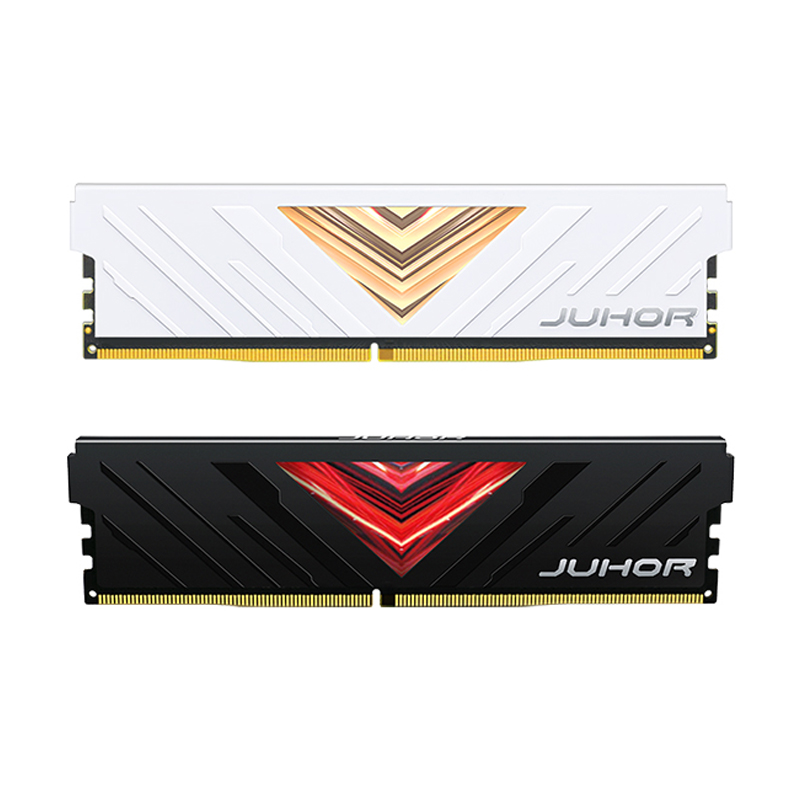Memory plays a crucial role in the stability and performance of any computing system. Whether you are building a gaming PC, a workstation, or a data server, understanding how memory reliability affects system behavior can help you make smarter hardware decisions. One of the most common questions during memory selection is: should you choose ECC memory or Non-ECC memory? This article explains their differences, how they affect performance, and which one is right for your specific use case.
ECC stands for Error-Correcting Code memory. As the name suggests, this type of RAM can detect and correct single-bit errors that may occur during data transmission. ECC modules include additional bits that store error-checking information. When data corruption happens, the ECC mechanism automatically identifies and fixes the error before it affects the system.
This makes ECC memory a preferred choice in servers, workstations, and data centers, where even a small data error can lead to system crashes or corrupted files. For example, in financial databases, scientific simulations, or AI model training, data accuracy is critical — and ECC ensures stable, error-free computation over long periods.

Non-ECC memory, on the other hand, does not include error correction capability. It processes data directly without additional checking bits. As a result, Non-ECC RAM has slightly higher performance and lower latency, making it ideal for consumer and gaming systems that prioritize speed over absolute data reliability.
In everyday computing, the chance of random memory errors is extremely low. Therefore, Non-ECC modules are commonly used in personal desktops, gaming PCs, and laptops, where cost efficiency and speed are more important than data protection. However, without error correction, a rare memory glitch could cause system instability or crashes in heavy workloads.
While both memory types serve similar basic functions, their internal mechanisms and performance outcomes differ significantly.
Aspect | ECC Memory | Non-ECC Memory |
Error Detection | Can detect and correct single-bit errors | No error detection or correction |
Reliability | Very high – suitable for critical systems | Lower – occasional bit errors possible |
Performance | Slightly slower due to error-checking overhead | Faster with lower latency |
Cost | More expensive | More affordable |
Compatibility | Requires ECC-supported CPU and motherboard | Works with most consumer platforms |
In short, ECC offers higher reliability, while Non-ECC provides better speed and affordability. The right choice depends on how your system will be used and how critical data integrity is to your tasks.
Different applications have different levels of sensitivity to memory errors. Understanding this can help you make the right decision:
Servers and Data Centers – These environments handle vast amounts of data and require 24/7 uptime. ECC memory is essential to prevent data corruption and ensure system stability.
Workstations (CAD, Video Editing, AI Training) – Professional workloads benefit from ECC’s stability, reducing the risk of crashes during long rendering or computation sessions.
Gaming and Home PCs – For personal use and gaming, Non-ECC memory is usually sufficient. It delivers slightly faster performance and lower cost without noticeable reliability issues.
Scientific Computing and Financial Analysis – These fields demand absolute precision, as even minor data errors can distort results. ECC memory is the standard choice here.
By matching your memory type to your workload, you can strike a balance between cost, speed, and reliability.
Memory reliability directly influences system stability. Even a single undetected memory error can lead to corrupted data, unexpected reboots, or software crashes. In mission-critical environments, these problems can be costly or even dangerous. ECC memory helps prevent such failures, making it indispensable in enterprise-grade systems.
From a performance standpoint, Non-ECC memory has a small edge due to the absence of error-checking operations. This makes it slightly faster, especially in single-threaded or gaming workloads where every nanosecond counts. However, in real-world use, the performance gap between ECC and Non-ECC is often minimal compared to the stability benefits ECC provides for critical systems.
Ultimately, the choice comes down to priorities: if stability and data integrity matter most, choose ECC; if speed and cost are more important, Non-ECC is the way to go.

Before purchasing ECC memory, it’s important to confirm that your CPU and motherboard support ECC functionality. Here’s how to check:
Review your motherboard’s technical specifications on the manufacturer’s website.
Check whether your processor supports ECC (most Intel Xeon and AMD Ryzen Pro CPUs do).
Be aware that some motherboards only support ECC Unbuffered (UDIMM) modules, not registered (RDIMM) ones.
Installing ECC memory on a system that doesn’t support it will cause it to run as Non-ECC, meaning the error correction feature will be disabled.
When comparing ECC vs Non-ECC memory, the choice depends on your system’s purpose and reliability requirements. ECC memory provides unmatched stability and data integrity, making it ideal for servers, workstations, and data-critical environments. Meanwhile, Non-ECC memory offers faster performance and lower cost, perfect for gaming and general-purpose systems.
If your system handles sensitive data, runs 24/7, or supports professional workloads, ECC memory is worth the investment. For everyday computing and entertainment, Non-ECC modules deliver great performance and efficiency.
Juhor, a professional DDR memory manufacturer, provides a full range of ECC and Non-ECC memory modules designed for high stability, compatibility, and performance. Whether you need memory for gaming PCs, enterprise servers, or industrial applications, Juhor delivers quality you can trust.